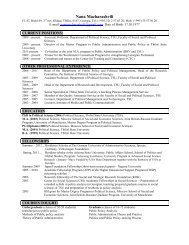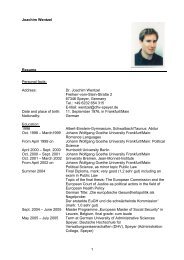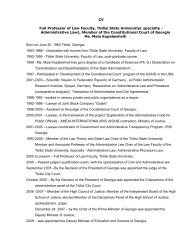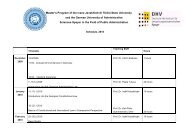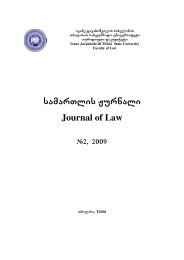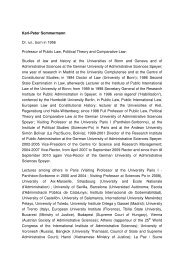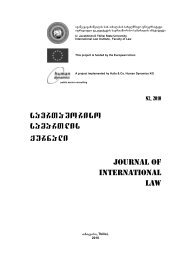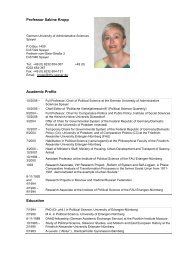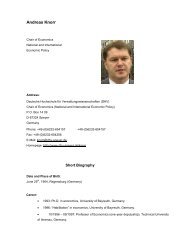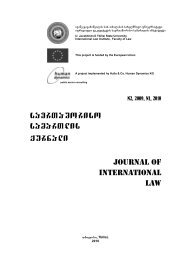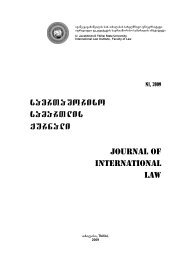Untitled
Untitled
Untitled
Create successful ePaper yourself
Turn your PDF publications into a flip-book with our unique Google optimized e-Paper software.
I. GIVIASVILI, INTERNATIONAL LEGAL ASSESSMENT OF THE RECENT STEPTS TAKEN BY THE RUSSIAN...<br />
matters, violates the 1993 CIS Convention on<br />
Legal Assistance and Legal Relations in Civil,<br />
Family, and Criminal Matters 7 and the 1959<br />
European Convention on Mutual Assistance<br />
in Criminal Matters 8 . Respectively, the violation<br />
of the principle of discharging international<br />
obligations in good faith is evident. Yet another<br />
principle established in international law<br />
and supported by the 1969 Vienna Convention<br />
on the Law of Treaties – pact sunt servanda<br />
– is also violated.<br />
3. INTERNATIONAL LEGAL ANALYSIS<br />
OF THE SHOOTING DOWN THE<br />
UNMANNED (SPY) PLANE OF THE<br />
MINISTRY OF INTERIOR OF GEORGIA<br />
On 20 April, 2008 the unmanned (spy)<br />
plane of the Ministry of Interior of Georgia was<br />
shot down by a fighter in the airial space of<br />
Georgia, in particular in the Autonomous Republic<br />
of Abkhazia. As allaged by the Georgian<br />
side, the plane was shot down by the<br />
fighter of the Russian Federation. There shall<br />
be an internaitonal legal appraisal of the fact<br />
by Georgia.<br />
3.1 Principle of Prohibition of<br />
Use of Force<br />
Article 2(4) of the United Nations Charter 9<br />
determines the principle of prohibition of use<br />
of force; in particular it stipulates that all Member<br />
states of the United Nations shall refrain<br />
from the threat or use of force against the territorial<br />
integrity or political independence of<br />
any state. It is apt to mention here that armed<br />
force is considered in the mentioned article<br />
under the use of force. 10<br />
Shooting down of the unmanned (spy)<br />
plane of the Ministry of Interior of Georgia by<br />
other state does certainly constitute a violation<br />
of the principle of prohibition of use of<br />
force, as safeguarded in the Article 2(4) of the<br />
United Nations Charter.<br />
3.2 Act of Aggression<br />
In 1974 the United Nations General Assembly<br />
adopted the Resolution 3314 about the<br />
deifinition of aggression. 11 According to the<br />
Article 1 of the the mentioned Resolution, aggression<br />
is a use of armed force by a State<br />
against the sovereignty, territorial integrity or<br />
political independence of another State. According<br />
to Article 2 of the Resolution, if a state<br />
uses armed force in contravention of the United<br />
Nations Charter, this will constitute prima<br />
facie evidence of an act of aggression. However,<br />
it must be also mentioned that according<br />
to the same Article, the United Nations Security<br />
Council may, in conformity with the Charter,<br />
conclude that a determination that an act<br />
of aggression has been committed is not justified<br />
if the committed act was not of sufficient<br />
gravity. The Article 3 of the Resolution provides<br />
for the acts, which, if committed regardless<br />
of a declaration of war shall qualify as an<br />
act of aggression:<br />
a) the invasion or attack by the armed forces<br />
of a State of the territory of another State,<br />
or any military occupation, however temporary,<br />
resulting from such invasion or attack,<br />
or any annexation by the use of force of the<br />
territory of another State or part thereof;<br />
b) Bombardment by the armed forces of a<br />
State against the territory of another State or<br />
the use of any weapons by a State against<br />
the territory of another State;<br />
c) The blockade of the ports or costs of a<br />
State by the amed forces of another State;<br />
d) An attack by the armed forces of a State<br />
on the land, sea or air forces, or marine and<br />
air fleets of another State;<br />
e) The use of armed forces of one State<br />
which are within the territory of another State<br />
with the agreement of the receiving State, in<br />
contravention of the provisions provided for<br />
in the agreement or any extention of their presence<br />
on such territory beyond the termination<br />
of the agreement;<br />
f) The action of a State in allowing its territory,<br />
which it has placed at the disposal of<br />
another State, to be used by that other State<br />
for perpetrating an act of aggression against<br />
the third State;<br />
g) The sending by or on behalf of a State<br />
of armed bands, groups, irregulars or mercenaries,<br />
which carry out acts of armed force<br />
against another State of such gravity as to<br />
amount to the acts listed above, or its substantial<br />
involvement therein.<br />
According to the Article 3 of the Constitution<br />
of Georgia and the Article 2 of the Law of<br />
Georgia on State Boundaries the territory of<br />
Georgia includes the air space of Georgia, re-<br />
217



